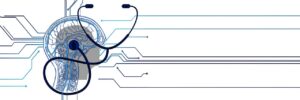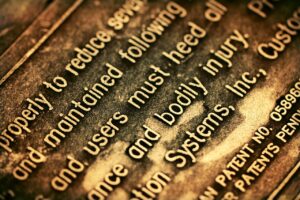Jean Piaget, pionero en el estudio del desarrollo cognitivo infantil, propuso una teoría del aprendizaje de Piaget que revolucionó nuestra comprensión del aprendizaje. Sus ideas se resumen con estos conceptos básicos que tienen como centro el proceso cognitivo.
Piaget creía que el teoría del aprendizaje de Piaget es fundamental para entender cómo los niños aprenden. Sus estudios se centraron en la forma en que las mentes infantiles construyen conceptos, razonan y adaptan su pensamiento durante la infancia. Para él, el proceso de desarrollo intelectual es clave para comprender cómo los niños aprenden y crecen.
Las ideas de Piaget sobre el aprendizaje se organizan en torno a las siguientes etapas del desarrollo cognitivo: la sensoriomotor, la preoperatoria, la operatoria y la formal. En cada una de estas etapas, el niño construye su conocimiento a través de la interacción con el entorno, experimentando e interpretando el mundo a través de procesos mentales activos y dinámicos.
Jean Piaget y su teoría del desarrollo cognitivo
Jean Piaget fue un psicólogo svíso que se sintió atraído por la comprensión del desarrollo infantil y el aprendizaje. Fue así como desarrolló la teoría del aprendizaje de Piaget, que tiene como objetivo entender cómo los niños construyen su conocimiento y razonamiento a medida que crecen.
Para Piaget, la inteligencia no es algo inherente ni innato, sino que se construye a través de la experiencia y el intercambio con el entorno. Según su teoría, los niños pasan por diferentes etapas de desarrollo cognitivo, en las que se estructuran sus pensamientos y creencias sobre el mundo.
En la teoria del aprendizaje de Piaget, los niños no son simplemente recipientes pasivos de información, sino que actúan como constructores activos de su conocimiento. Aprenden a través de la experimentación, la exploración y la resolución de problemas, y su comprensión del mundo se forma gradualmente a medida que crecen.
Piaget también sostuvo que el juego es una herramienta fundamental para el aprendizaje infantil. Consideraba que el juego permite a los niños explorar, descubrir y experimentar con diferentes conceptos y procesos, lo que les ayuda a desarrollar su pensamiento y razonamiento.
Etapas del desarrollo cognitivo según Piaget
Según la teoría del aprendizaje de Piaget, los niños pasan por cuatro etapas del desarrollo cognitivo importantes:
La primera etapa es la sensoriomotor, que se produce entre los 0 y los 2 años. En esta etapa, el niño construye su conocimiento a través de las sensaciones físicas y las acciones en el mundo. El niño aprende a través del experimento y la exploración, descubriendo patrones y relaciones entre las cosas.
La segunda etapa es la preoperatoria, que se produce entre los 2 y los 7 años. En esta etapa, el niño comienza a desarrollar su capacidad para pensar de manera más abstraida y formular conceptos. El niño aprende a hablar y a utilizar herramientas simplemente, y se vuelve capaz de imaginar y representarse el mundo.
La tercera etapa es la operatoria, que se produce entre los 7 y los 11 años. En esta etapa, el niño desarrolla su capacidad para pensamiento lógico y formal, y comienza a entender conceptos más complejos y abstractos. El niño aprende a analizar problemas, utilizar reglas y crear soluciones.
La cuarta etapa es la formal, que se produce a partir de los 11 años. En esta etapa, el niño desarrolla su capacidad para razonar deductivamente y abstraer conceptos. El niño aprende a utilizar lenguaje más sofisticado y a pensar en términos abstractos.
En cada una de estas etapas del desarrollo cognitivo, el niño construye su conocimiento y su comprensión del mundo a través de la exploración, la experimentación y la resolución de problemas.
Sensoriomotor (0-2 años) – La construcción de la realidad física
La etapa sensoriomotor es la primera fase del desarrollo cognitivo según Piaget, que se produce entre los 0 y los 2 años. En esta etapa, el niño construye su conocimiento a través de las sensaciones físicas y las acciones en el mundo.
Durante esta etapa, el niño experimenta con el entorno a través del tacto, la vista, el oído y el olfato. Aprende a distinguir entre lo que es caliente y frío, lo que es dulce y amargo, y lo que es brillante y oscuro.
El niño también aprende a manipular objetos físicos y a asociar causas con efectos. Por ejemplo, un niño en esta etapa puede aprender que cuando cierra una mano en torno a un objeto pequeño, éste no se mueve más.
La construcción de la realidad física es fundamental para el desarrollo cognitivo del niño en esta etapa. El niño aprende a comprender la relación entre su propio cuerpo y los objetos del mundo, lo que le permite desarrollar habilidades como movilizar objetos, alimentarse y comunicarse con los demás.
A medida que crece, el niño también comienza a desarrollar sus habilidades motoras, como caminar, correr y balancearse. Estas habilidades son esenciales para la exploración y el descubrimiento del mundo y permiten al niño interactuar con su entorno de manera más compleja.
La etapa sensoriomotor es una fase crítica en el desarrollo cognitivo del niño, durante la cual se construye la realidad física y se desarrollan habilidades motoras esenciales para la exploración y el descubrimiento del mundo.
Preoperatoria (2-7 años) – El pensamiento simbólico emerge
La etapa preoperatoria es la segunda fase del desarrollo cognitivo según Piaget, que se produce entre los 2 y los 7 años. En esta etapa, el niño comienza a desarrollar su capacidad para pensar de manera más abstraida y formular conceptos.
Durante esta etapa, el niño aprende a utilizar símbolos sociales como el lenguaje para comunicarse con los demás. El niño también comienza a desarrollar su capacidad para imitar acciones y objetos, lo que le permite aprender de manera más efectiva.
La construcción de la realidad simbólica es fundamental para el desarrollo cognitivo del niño en esta etapa. El niño aprende a comprender la relación entre los símbolos (como el lenguaje) y las cosas reales, lo que le permite desarrollar habilidades como hablar, escribir y representarse.
A medida que crece, el niño también comienza a desarrollar sus habilidades mentales, como el pensamiento lógico y la resolución de problemas simples. El niño aprende a utilizar reglas y crear soluciones para problemas cotidianos.
La preoperatoria es una etapa importante en el desarrollo cognitivo del niño porque es cuando el niño comienza a desarrollar su capacidad para pensamiento simbólico, lo que le permite aprender de manera más efectiva y comprender la realidad en un sentido más abstracto.
Algunos ejemplos de cómo los niños pueden desarrollar sus habilidades mentales durante esta etapa incluyen:
- Jugar con bloques o piezas de construcción para crear estructuras y representaciones
- Imitar acciones y objetos, como imitar a alguien que está cocinando en la cocina
- Utilizar el lenguaje para comunicarse con los demás, como hablar sobre sus experiencias y emociones
- Resolver problemas simples, como encontrar un objeto perdido
La etapa preoperatoria es una fase importante en el desarrollo cognitivo del niño, durante la cual se construye la realidad simbólica y se desarrollan habilidades mentales esenciales para el aprendizaje y la comprensión.
Operacional (7-11 años) – Desarrollo lógico y formal
La etapa operatoria es la tercera fase del desarrollo cognitivo según Piaget, que se produce entre los 7 y los 11 años. En esta etapa, el niño comienza a desarrollar su capacidad para pensamiento lógico y abstracto.
Durante esta etapa, el niño aprende a utilizar reglas y conceptos formales para resolver problemas y comprender la realidad. El niño también comienza a desarrollar sus habilidades para abordar problemas de manera creativa y innovadora.
Algunas características clave de la etapa operatoria incluyen:
- La capacidad para pensar lógicamente y abstractamente
- La comprensión de conceptos formales como números, fechas, tiempos y espacio
- La habilidad para resolver problemas de manera creativa y innovadora
- La capacidad para abordar temas abstractos, como la moralidad y la justicia
El desarrollo cognitivo en esta etapa se caracteriza por la adquisición de habilidades mentales más avanzadas, como la capacidad para:
- Reconocer patrones y relaciones entre cosas
- Utilizar reglas y conceptos formales para resolver problemas
- Pensar de manera hipotética y considerar posibilidades diferentes
- Desarrollar argumentaciones lógicas y presentar casos
La etapa operatoria es una fase importante en el desarrollo cognitivo del niño porque es cuando el niño comienza a desarrollar su capacidad para pensamiento lógico y abstracto, lo que le permite comprender la realidad de manera más profunda y resolverse de problemas de manera más efectiva.
Algunos ejemplos de cómo los niños pueden desarrollar sus habilidades mentales durante esta etapa incluyen:
- Resolver problemas matemáticos complejos, como ecuaciones o problemas de lógica
- Leer textos abstractos y comprender la narrativa y el estilo literario
- Desarrollar habilidades para argumentar y presentar casos
- Pensar en términos de causas y consecuencias y desarrollar planificaciones para alcanzar objetivos
La etapa operatoria es una fase importante en el desarrollo cognitivo del niño, durante la cual se desarrolla la capacidad para pensamiento lógico y abstracto, lo que le permite comprender la realidad de manera más profunda y resolverse de problemas de manera más efectiva.
Formal (11 años+) – Pensamiento abstracto y deductivo
La etapa formal es la cuarta y última fase del desarrollo cognitivo según Piaget, que se produce a partir de los 11 años. En esta etapa, el niño ha alcanzado un nivel alto de madurez cognitiva y puede pensar de manera abstracta y deductiva.
Durante esta etapa, el niño:
- Ha desarrollado una comprensión integral de la realidad y puede abstraerse de los detalles concretos para considerar conceptos más amplios
- Puede utilizar lógica matemática y deductiva para solucionar problemas y llegar a conclusiones
- Tiene una capacidad más avanzada para reflexionar sobre su propio conocimiento y aprender de sus errores
- Puede considerar posibilidades diferentes y desarrollar teorías para explicar la realidad
Algunas características clave de la etapa formal incluyen:
- Pensamiento abstracto: La capacidad para considerar conceptos más amplios y generalizar sobre la base de la experiencia
- Pensamiento deductivo: La capacidad para utilizar lógica matemática y deductiva para solucionar problemas y llegar a conclusiones
- Reflexión meta-cognitiva: La capacidad para reflexionar sobre su propio conocimiento y aprender de sus errores
- Consideración de posibilidades diferentes: La capacidad para considerar diferentes posibilidades y desarrollar teorías para explicar la realidad
La etapa formal es una fase importante en el desarrollo cognitivo del niño porque es cuando el niño ha alcanzado un nivel alto de madurez cognitiva y puede utilizar su capacidad de pensamiento abstracto y deductivo para comprender la realidad de manera más profunda y resolverse de problemas de manera más efectiva.
Algunos ejemplos de cómo los niños pueden desarrollar sus habilidades mentales durante esta etapa incluyen:
- Desarrollar teorías para explicar la naturaleza del universo y las leyes físicas
- Resolver problemas complejos que requieren pensamiento abstracto y deductivo, como ecuaciones diferenciales o problemáticas algebraicas
- Reflexionar sobre su propio conocimiento y aprender de sus errores
- Desarrollar habilidades para argumentar y presentar casos de manera efectiva
La etapa formal es una fase importante en el desarrollo cognitivo del niño, durante la cual se alcanza un nivel alto de madurez cognitiva y se puede utilizar la capacidad de pensamiento abstracto y deductivo para comprender la realidad de manera más profunda y resolverse de problemas de manera más efectiva.
Conclusión
La Teoría del Aprendizaje de Piaget es una teoría que describe el proceso de desarrollo cognitivo en los niños a lo largo de las etapas preoperatoria, operatoria y formal. Piaget sostiene que el aprendizaje es un proceso activo donde los niños construyen su propio conocimiento a través de la experiencia y la interacción con el entorno.
Las ideas claves de Piaget sobre el aprendizaje incluyen:
- El procesamiento cognitivo como punto central para el desarrollo del niño
- La importancia de la actividad juguetona para el desarrollo de la capacidad de pensamiento abstracto
- La construcción de la realidad a través de la experiencia y la interacción con el entorno
- La importancia de la reflexión meta-cognitiva en el desarrollo del pensamiento crítico
La Teoría del Aprendizaje de Piaget ha tenido un impacto significativo en la educación y la teoría del aprendizaje, y sigue siendo una teoría importante y relevante para entender el proceso de desarrollo cognitivo en los niños.










